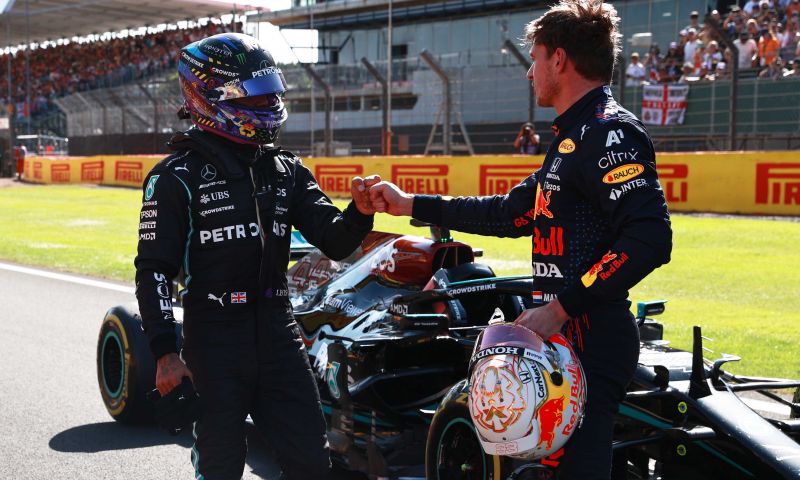Hamilton most fortunate: 'When you compare that with Verstappen...'
Red Bull Contentpool
F1 News

- GPblog.com
Lewis Hamilton has been the driver who has had the most luck during the first half of the season according to Martin Brundle. Together with Paul di Resta he looks back on the first half of the exciting F1 season at Sky Sports.
Hamilton is lucky
Hamilton comes to the Belgian Grand Prix as the leader in the world championship, and thus also went into the summer break as the leader. Max Verstappen follows at close distance and has also had to deal with a lot of bad luck. There was his incident in England with Hamilton, but he was also the victim of a blowout in Azerbaijan and an error of judgement by Valtteri Bottas in Hungary.
''Lewis has been the luckier driver. If you think about Imola in the wall, then when Bottas and Russell got together it gave Hamilton chance to come back and gain some points. He got lucky with extra points in Hungary and not getting skittled in the first corner and Vettel was disqualified later on,'' said Brundle.
Bad luck for Verstappen
''When you compare that with Max, the blowout in Baku, the accident in Hungary and just generally some bad luck. Of course, Silverstone could've gone either way with them both being out or none of them. They've both raised to a new level, and I wouldn't want to separate them on who has done a better job in the first half of the season. But we do know, Lewis tends to come back stronger than ever after the summer break,'' said the former F1 driver.
Di Resta largely agrees with his colleague on that. ''I think Martin has summed it up. If you look at how they've gone about it, Red Bull have done a very good job. They extracted what they could and put that fight to Mercedes. But I kind of agree, this is the next stage where they have to get their arms out and wrestle because any dropped points will be critical when the flag drops in Abu Dhabi. And that's what they're up against, they don't know what the calendar is going to be. We've got some movement in that due to COVID,'' the analyst concludes.

